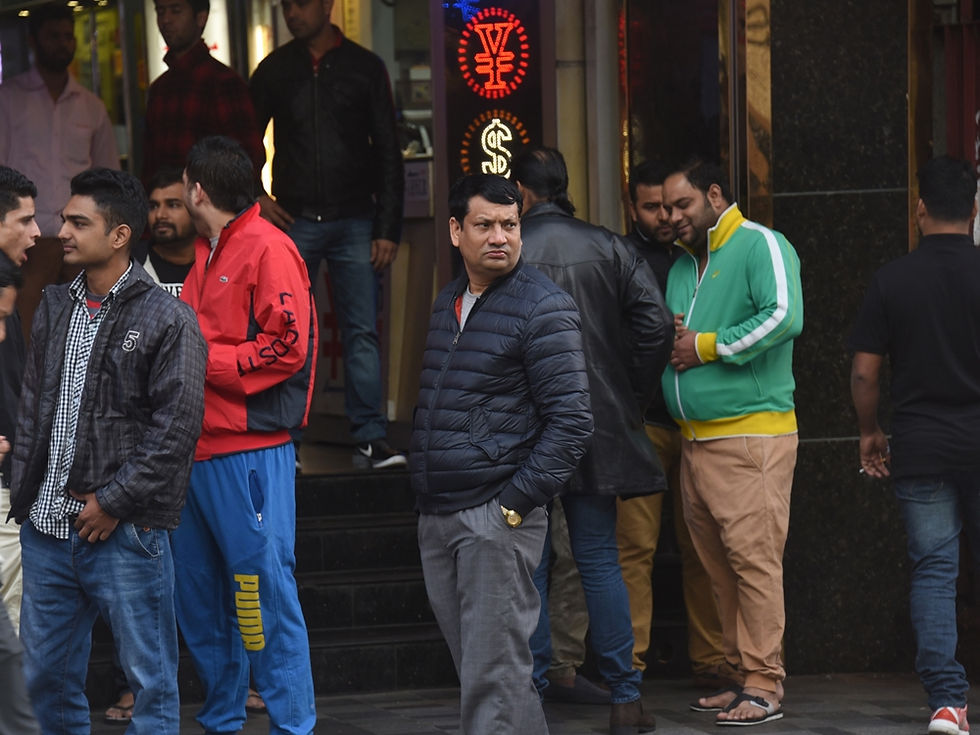Ethnic Minority Workers Deserve Recognition
- Nicholas Gao
- Nov 22, 2024
- 3 min read
Updated: Sep 15
Posted November 22
Writer - Nicholas

As ‘Asia’s world city,’ Hong Kong prides itself on its pluralism -- yet many of its ethnic minorities lack basic rights.
Hong Kong’s population is 91.6% Han Chinese. The other 8.4%, or 619,568 residents, are from other ethnic groups. The two largest ethnic groups are Filipinos (roughly 200,000) and Indonesians (approximately 140,000), according to 2021 census data. They have come to Hong Kong under a program established in the 1970s that grants them temporary residency as domestic workers who assist families with household chores and childcare duties.
However, Hong Kong’s foreign domestic workers – most of whom are women – are lured by the promise of a better life only to find themselves trapped in a system plagued by exploitation and abuse.
Foreign domestic workers are not allowed to live independently, cannot stay in the city for more than 14 days if unemployed, and cannot apply for permanent residency even if they have lived in the region for seven years, which is the eligibility requirement for other immigrants.
According to a 2016 report from the Hong Kong Justice Centre, 66% of domestic workers have been exploited, 18% are victims of physical abuse, and 16% are working under forced labor conditions. During the 2020 COVID-19 lockdowns, reports of sexual abuse and harassment tripled, according to a report in Al Jazeera.
The average workweek runs to 71.4 hours, with one day off. And, under the city’s live-in rule, domestic workers must stay with their families, making it easier for them to be overworked. They often do not get their own room, with sleeping arrangements that lack privacy, such as being on the floor or bunking with the children. In one account, a domestic worker said her bedroom consisted of a couch in the family living room cordoned off by a curtain.
As Germain Haumont, an attorney, told Al Jazeera last year, “Foreign domestic workers in Hong Kong are seen as tools more than humans. … The second-class status they are assigned is discriminatory in essence. This status is legally determined in Hong Kong, both in labor law and immigration law.”
A 2023 report from the UN Human Rights office also highlighted the lack of rights and unequal treatment of domestic workers, calling for minimum wage laws to be applied to them. The report also called for amending the two-week and live-in rules “with a view to enabling migrant domestic workers ’ full enjoyment of their rights.” The report also raised concerns over “exploitative practices by employers,” “trafficking of migrant women,” and a failure of local labor authorities to follow up on complaints over working and living conditions.
The domestic worker program was instituted so that both parents could enter the workforce at a time when the city’s economy was rapidly transitioning from manufacturing to financial services. In 2018, an estimated 110,000 mothers were able to work thanks to domestic workers, according to a report from Enrich HK, a local charity.
In 2019, Hong Kong ranked third on the World Economic Forum’s list of the most competitive economies, ahead of countries like Japan, Germany, and Taiwan. In terms of per capita GDP, Hong Kong, at $48,198, is among the richest areas in the world.
Some data suggests this success is, in part, built on the backs of domestic foreign workers who up until recently were earning a mere 86 cents an hour, a fraction of the city’s regular minimum wage, $5.15. The benefits of such an unequal arrangement come out to an estimated contribution of $12.6 billion to Hong Kong’s economy, equivalent to 3.6% of its GDP, according to the Enrich HK report. That figure accounts for workers’ own spending as consumers, the value of their work for which they are underpaid, and the value of the time they free up for their employers.
Even the Hong Kong government’s efforts at reform have continued to perpetuate a system of inequality and exploitation. In September 2024, Hong Kong raised the minimum wage for domestic workers by 2.5%. But as one of the richest areas of the world, Hong Kong can afford to do more. It must if it wants to live up to its own ideals.
Hong Kong’s treatment of migrant workers is a stain on its image as an economic success story. This side of Hong Kong has been ignored for far too long, and it's time to take action.



